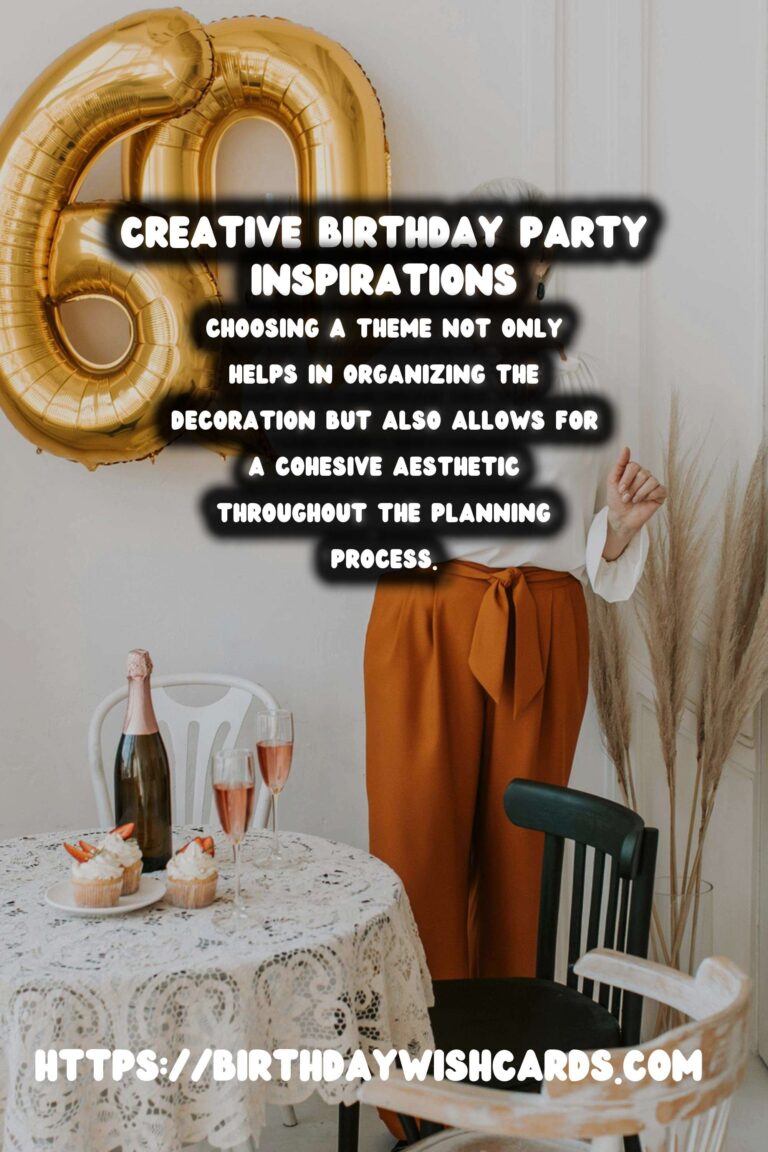Meaningful Festival Planning Guide That Inspire Connection
Meaningful Festival Planning Guide That Inspire Connection
Festivals are not just events; they are celebrations of culture, community, and connection. Planning a festival that truly resonates with attendees requires careful thought and meaningful engagement. In this guide, we will explore the essential steps and creative ideas to create a festival that fosters connections and leaves lasting memories.
Understanding the Purpose of Your Festival
Before diving into the logistics, it is crucial to define the purpose of your festival. What message do you want to communicate? Is it to celebrate a tradition, promote a cause, or simply bring people together for fun? Understanding this aspect will guide your planning process and ensure every element of your festival aligns with your mission.
Identifying Your Audience
Your festival’s audience plays a significant role in shaping its character. Are you targeting families, young adults, or a specific cultural group? Understanding your audience will help tailor activities, performances, and marketing strategies that resonate with them.
Choosing the Right Location
The venue sets the atmosphere of the festival. Outdoor parks, community centers, or local landmarks can offer distinct experiences. Consider accessibility, size, and amenities when selecting the ideal location. A place that is easy to reach and has adequate facilities will greatly enhance the attendee experience.
Creating a Festival Theme
A compelling theme can unify all aspects of your festival. It reflects the purpose and engages attendees creatively. Whether it’s a food festival, arts day, or cultural carnival, a clear theme helps guide decoration, activities, and promotions, making your event memorable.
Engaging Local Artists and Vendors
Involving local artists and vendors not only enhances the festival’s offerings but also builds community support. Reach out to local musicians, food vendors, and artisans to participate. This collaboration enriches the festival experience while promoting local talent.
Designing Interactive Experiences
To foster connections, create interactive experiences that encourage participation. Workshops, hands-on activities, and exhibits that allow attendees to engage with the content will enhance their connection to the festival and each other. Consider offering activities like craft stations, cooking demonstrations, or community art projects.
Utilizing Music and Performance
Live music and performances are central to many festivals. Choose acts that align with your theme and appeal to your audience. Whether it’s local bands, dance troupes, or theatrical performances, live entertainment creates a vibrant atmosphere that draws people in and brings them together.
Incorporating Educational Elements
Adding educational components can elevate your festival from just a gathering to a valuable experience. Workshops, guest speakers, or informational booths provide attendees with knowledge that enriches their festival experience and helps them make deeper connections.
Creating a Social Media Plan
In today’s digital age, a strong social media presence is essential for festival marketing. Utilize platforms like Instagram, Facebook, and Twitter to create buzz around your event. Share behind-the-scenes preparations, sneak peeks of performances, and personal stories from participants to build excitement.
Encouraging Community Participation
Community involvement is vital for a successful festival. Encourage local businesses, schools, and organizations to participate through sponsorships or as event partners. This not only enhances the festival offerings but also strengthens relationships within the community.
Planning for Accessibility
Ensure your festival is accessible to everyone, including those with disabilities. Consider physical accessibility, such as wheelchair ramps and seating arrangements, as well as sensory-friendly spaces. Inclusivity is paramount in fostering a sense of belonging among all attendees.
Measuring Success
After the festival ends, take the time to measure its success. Collect feedback from attendees, vendors, and volunteers to understand what worked well and what could be improved for next time. This information is invaluable for planning future festivals and ensuring continuous improvement.
Conclusion
Planning a meaningful festival is a rewarding venture that can significantly impact your community. By focusing on connection and engagement, you can create an event that resonates deeply with attendees, fosters lasting relationships, and enriches the local culture. Whether it’s through interactive experiences, outstanding performances, or educational opportunities, your festival can inspire connection and celebration.
Festivals are not just events; they are celebrations of culture, community, and connection.
Understanding your audience will help tailor activities, performances, and marketing strategies that resonate with them.




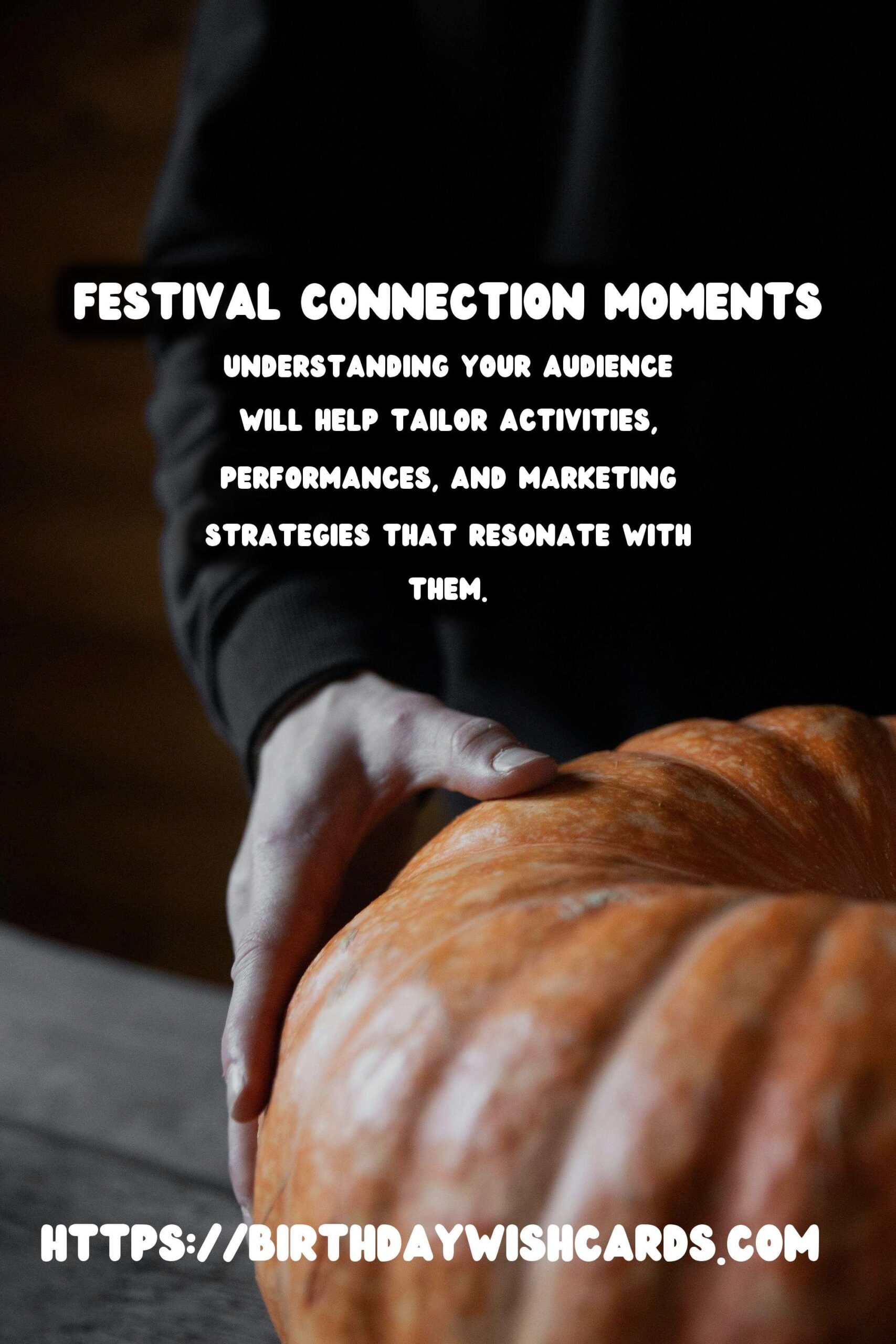
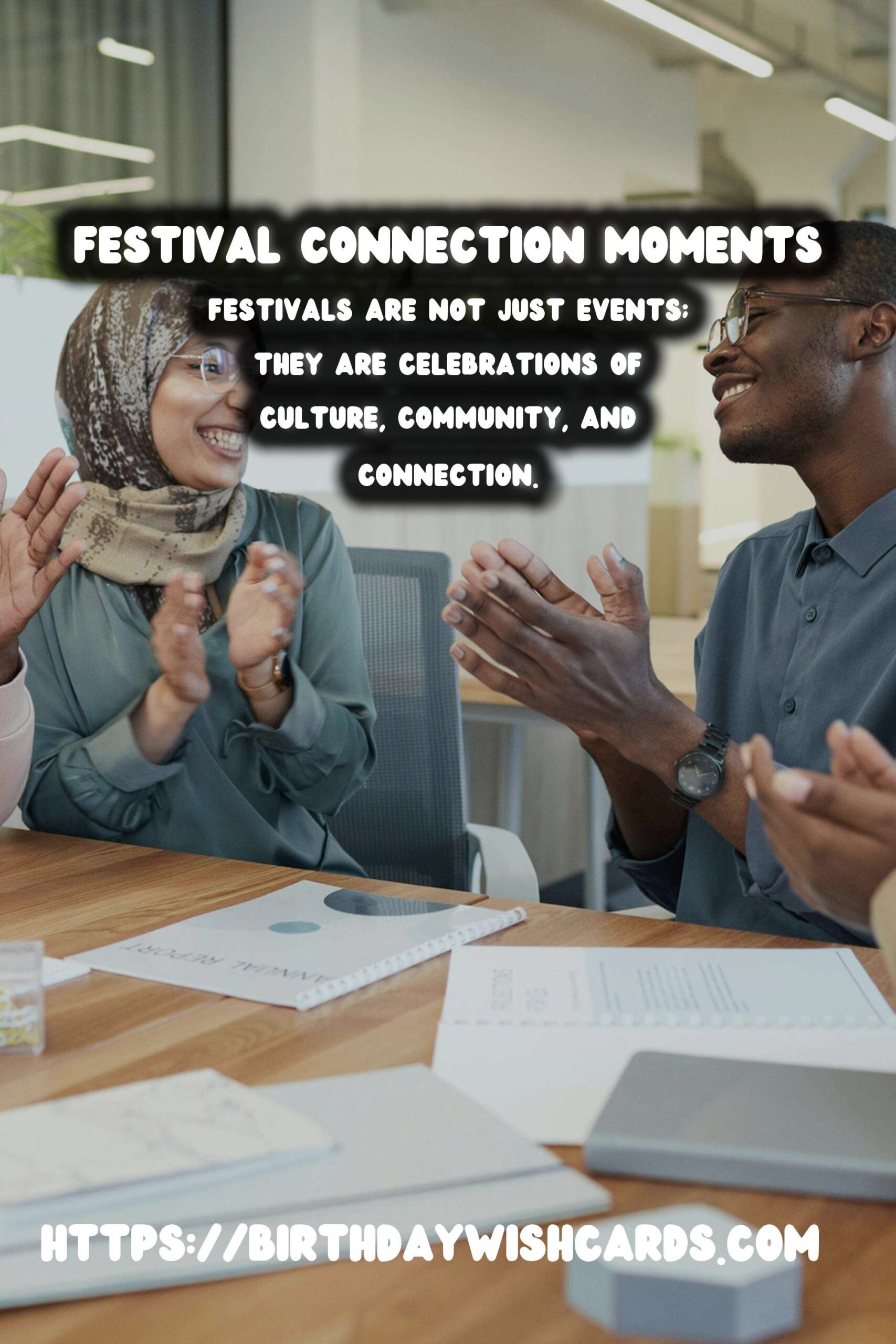

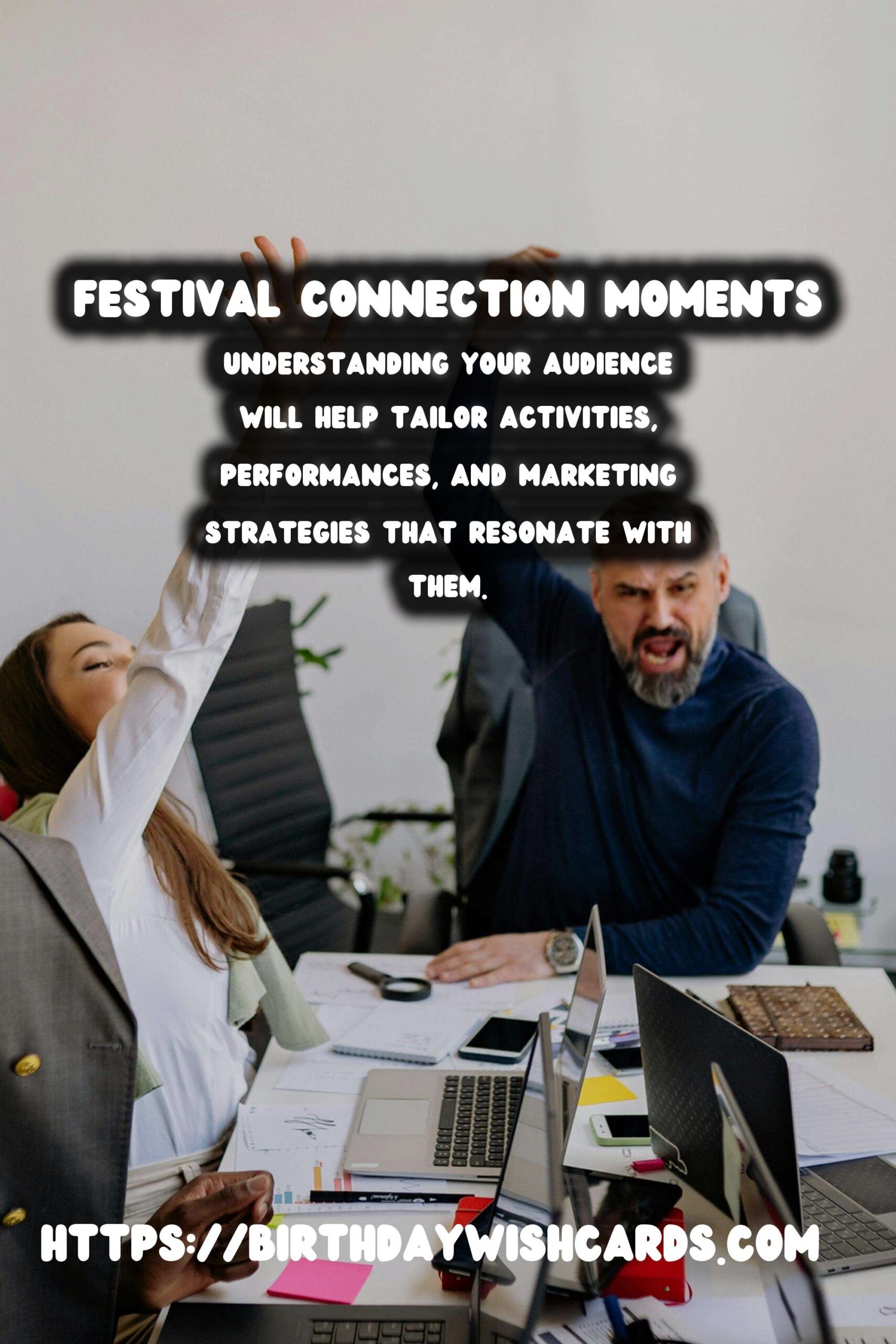
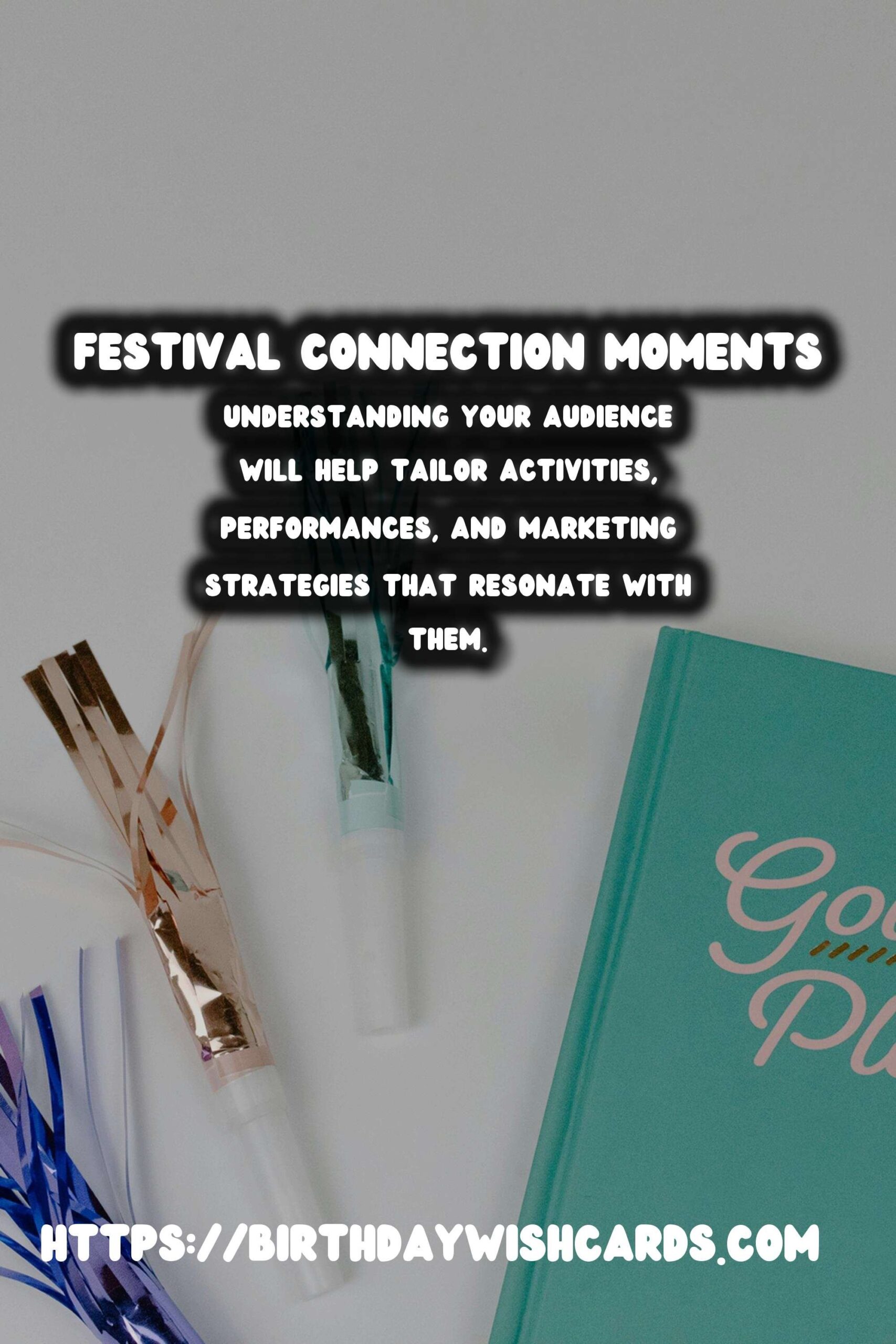

#FestivalPlanning #CommunityConnection


